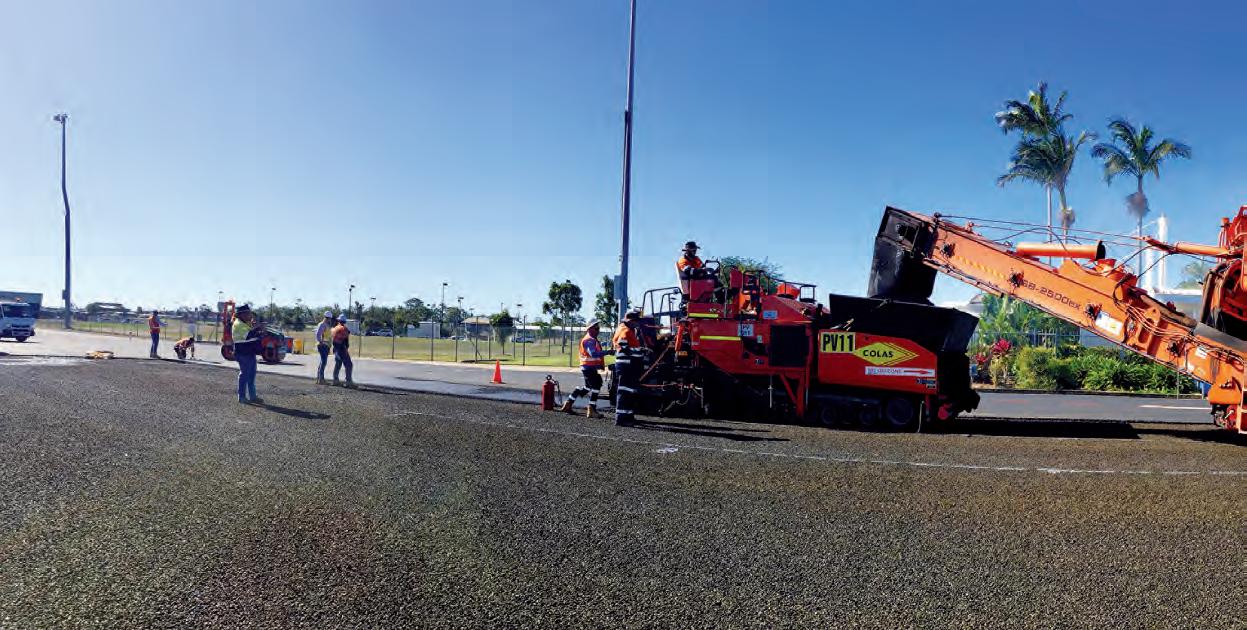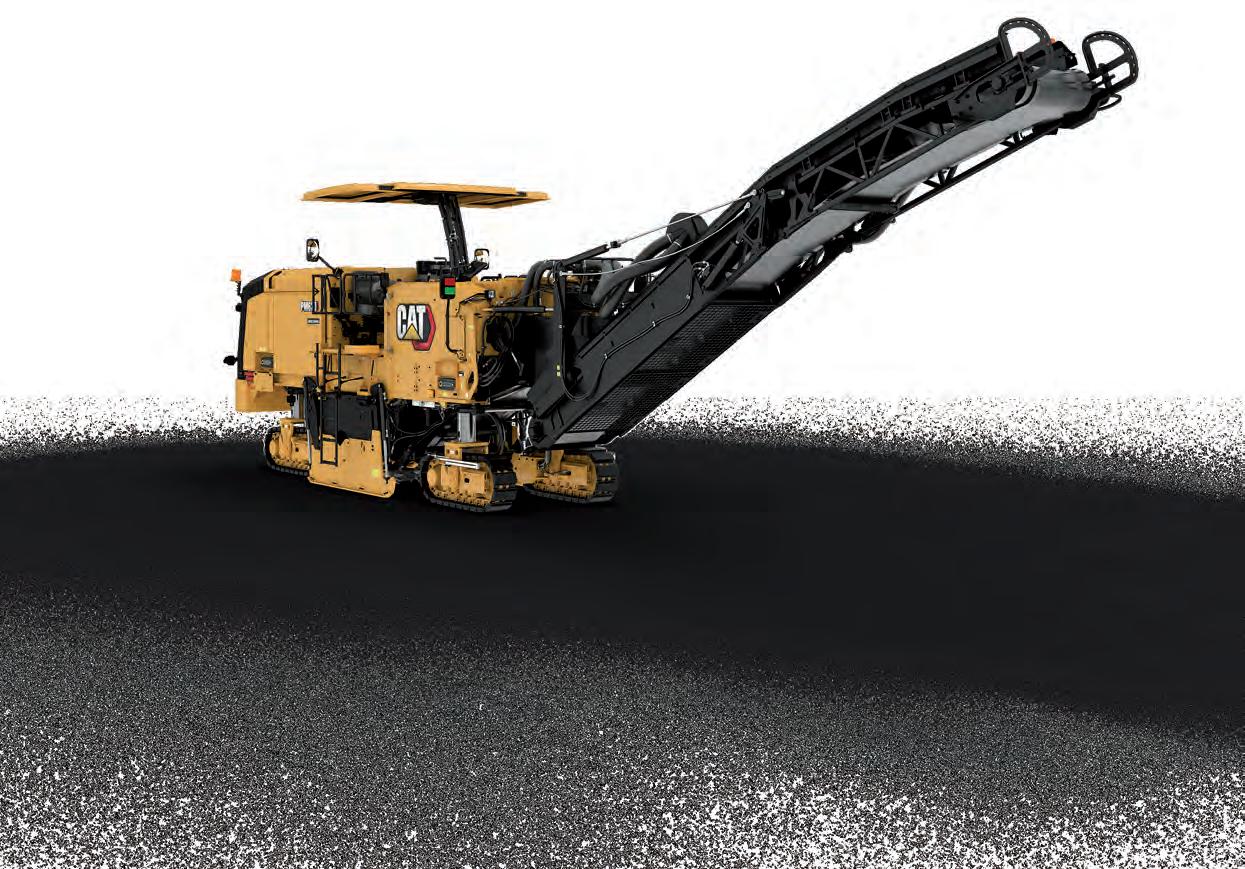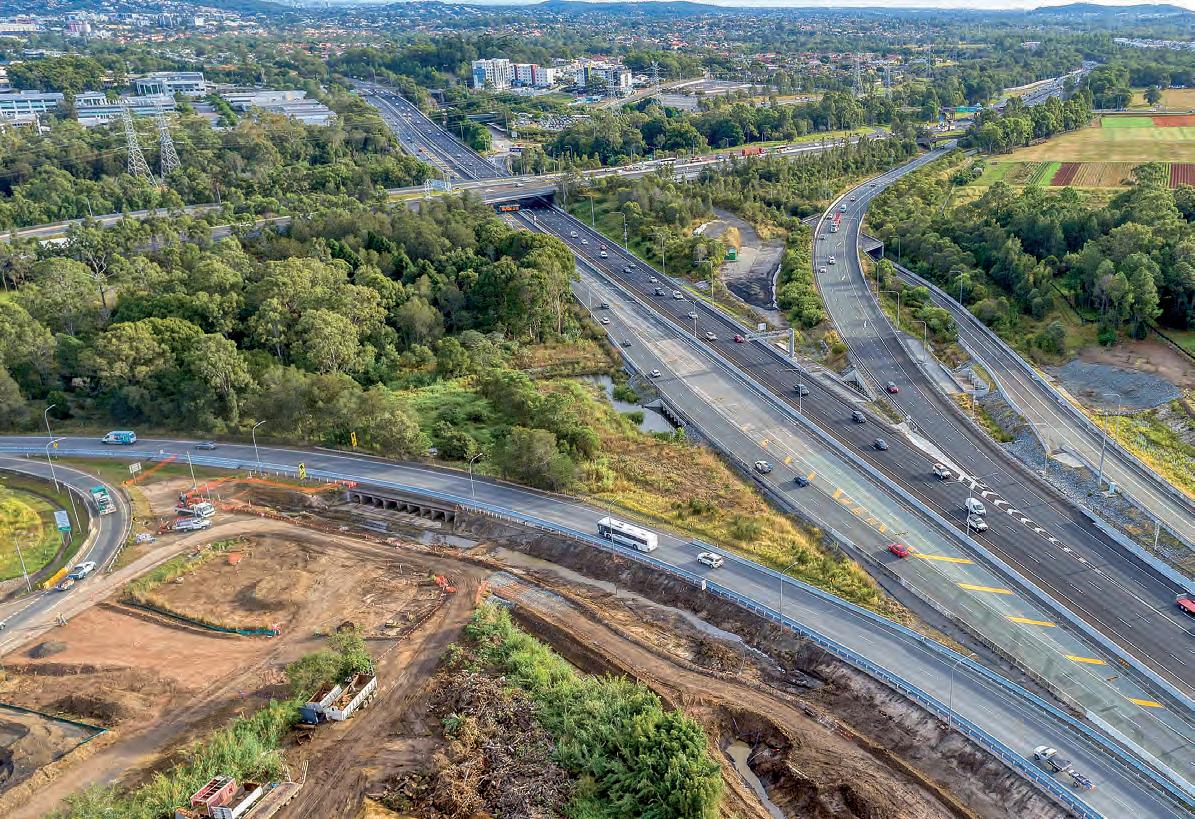CONTINUAL IMPROVEMENT PROGRAM: INTELLIGENT COMPACTION THE AUSTRALIAN ASPHALT PAVEMENT ASSOCIATION’S EXECUTIVE DIRECTOR OF TECHNOLOGY AND LEADERSHIP, ANNA D’ANGELO, EXPLAINS THE BENEFITS OF INTELLIGENT COMPACTION AND THE IMPORTANCE OF USING THE TECHNOLOGY TO PRODUCE QUALITY PAVEMENTS.
T
he Australian flexible pavement industry is committed to continual improvement of flexible pavement construction outcomes. The peak body for the industry, Australian Asphalt Pavement Association (AAPA) supports the use of innovative and smart technology to improve the quality and consistency of the delivered product. One such example of an innovative technology is the Intelligent Compaction system. Over the past few decades, Intelligent Compaction systems have been developed to enable increased quality when applied to asphalt compaction. Internationally, the use of Intelligent Compaction technology in pavement construction is growing and 33 American states have implemented Intelligent Compaction specifications for asphalt paving.
BENEFITS OF INTELLIGENT COMPACTION Intelligent Compaction refers to the compaction of road materials using modern vibratory rollers that are equipped with an in-situ measurement system and feedback control. For asphalt, this includes the use of vibratory rollers with an integrated response measurement system, a global positioning system, a software that automates documentation of the results and on-board computer display. This can be combined with infrared temperature sensors to track the surface temperature. There are several well documented benefits of Intelligent Compaction for asphalt. Firstly, it can improve uniformity and density which leads to quality asphalt performance. Secondly, it can also lead to improved efficiency during the compaction process.
Compaction is one of the most important processes in roadway construction. It can be used to achieve high quality and uniformity of pavement materials. 20
ROADS JULY 2020
In addition, Intelligent Compaction can improve documentation of the compaction process providing improved process control records and has the potential to reduce compliance testing. AAPA recognises this technology can offer the opportunity to achieve lower construction costs with increased pavement durability and saw a need to further develop industry knowledge of the fundamental concepts of Intelligent Compaction. To address this need, AAPA organised its first Virtual Master Class bringing international experts from the USA to offer access to their knowledge and experience. For the Virtual Master Class, an interactive forum linked to experts such as George Chang, from Transtec, Prof. Nazarian from the University of Texas and Rebecca Embacher from Minnesota Department of Transport. These industry experts provided an


















